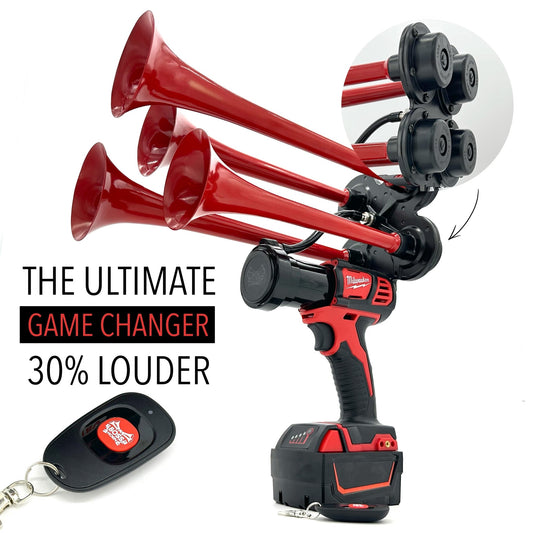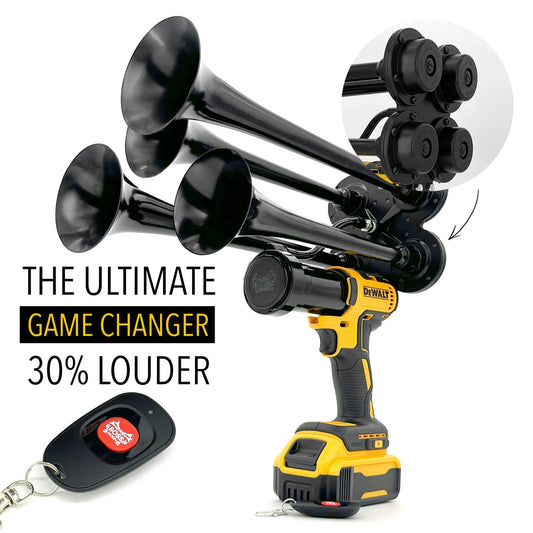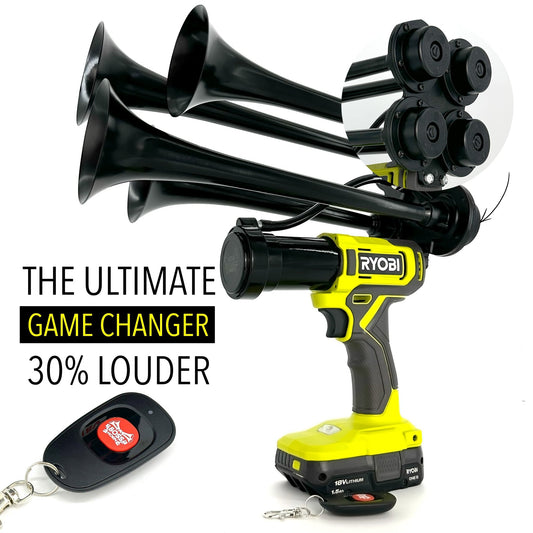According to recent studies, the use of a car horn dates back to the earliest automobiles, serving as a warning signal to alert others of oncoming vehicles. Over time, car horns have become an essential component of road safety, allowing drivers to communicate in situations where visibility is limited.
In today's fast-paced world, the decision to use a car horn or slam on the brakes can be a split-second choice for drivers. With the increase in traffic congestion and distracted driving, the proper use of these safety features is more critical than ever. Statistics show that a large number of accidents could be prevented with timely horn use or quick braking reactions.
One effective solution to the dilemma of deciding whether to use a car horn or slam on the brakes is to prioritize clear communication with other drivers on the road. By following traffic rules and respecting the rights of other motorists, drivers can reduce the need for sudden braking or excessive horn honking. This proactive approach can create a safer and more efficient driving environment for everyone on the road.
Should I slam on my car brakes or sound the horn in a dangerous situation? When faced with a potential collision or an obstructed path while driving, it can be difficult to know the best course of action. Deciding whether to slam on your brakes to avoid an accident or sound your horn to alert others to your presence requires quick thinking and skillful judgement. In the following sections, we will explore the potential consequences of each action and provide guidance on how to respond effectively in such scenarios.
Driving etiquette and safety are crucial aspects of being on the road. When faced with a potential collision or dangerous situation while driving, it is essential to consider the best course of action to avoid accidents. In such scenarios, drivers often find themselves torn between slamming on the brakes or sounding the horn to alert other drivers. Each action has its own set of benefits and considerations.
Slamming on the brakes:
- If you find yourself in a situation where a collision seems imminent, slamming on the brakes can help reduce speed and potentially avoid a crash.
- Quickly stepping on the brake pedal can help bring your vehicle to a halt and prevent further damage.
- This action can be especially useful when you need to stop suddenly due to an unexpected event on the road.
Sounding the horn:
- Using your horn can help alert other drivers of your presence and potentially prevent a collision.
- Horns are a useful tool for communication on the road, especially in situations where verbal communication is not possible.
- Sounding the horn can serve as a warning signal for other drivers to avoid dangerous maneuvers or actions.
Statistics:
- According to the National Highway Traffic Safety Administration (NHTSA), over 1.7 million rear-end collisions occur each year in the United States.
- The NHTSA also reports that approximately 23% of all traffic accidents are rear-end collisions.
- In a study conducted by the Insurance Institute for Highway Safety (IIHS), it was found that the use of horns by drivers can reduce the risk of accidents by up to 37%.
By understanding the benefits and considerations of slamming on the brakes or sounding the horn in hazardous situations, drivers can make informed decisions to ensure their safety and the safety of others on the road. Remember to always prioritize safety and follow traffic laws to prevent accidents and promote a safer driving environment.
https://youtube.com/watch?v=UrxugzLQJrg
Can I alert other drivers of potential danger by making a loud noise?
Yes, using your horn is a common way to communicate with other drivers and pedestrians on the road. It can be used to alert others of danger, signal a potential hazard, or simply to get someone's attention. However, it is important to use your horn responsibly and only when necessary to avoid causing unnecessary noise pollution. When using your horn, remember to:
1. Stay calm and avoid using your horn out of frustration or anger.
2. Use short, quick taps of the horn to communicate a message effectively.
3. Be aware of your surroundings and use your horn only in situations where it can prevent a potential accident.
How should I react in a situation where I need to make a quick decision on the road?
When faced with a sudden dilemma on the road, it is essential to remain calm and focused to make the best decision possible. Here are a few tips on what to do in such situations:
1. Assess the situation quickly and prioritize your safety and the safety of others on the road.
2. Stay alert and be prepared to take evasive action if necessary to avoid a collision.
3. Use your horn to alert others of the danger and communicate your intentions if needed.
Is it appropriate to use my horn in a non-emergency situation?
While using your horn in non-emergency situations is generally discouraged, there are some instances where it may be appropriate. For example, using your horn to alert a distracted driver who is drifting into your lane or failing to notice a changing traffic signal can help prevent a potential accident. However, it is important to use your horn judiciously and avoid unnecessary noise pollution. When using your horn in a non-emergency situation, remember to:
1. Assess the urgency of the situation and determine if using your horn is necessary.
2. Use your horn sparingly and avoid prolonged honking, which can be seen as aggressive or disruptive.
3. Be mindful of noise ordinances and local regulations regarding horn usage to avoid potential fines or penalties.
What are some alternative ways to communicate with other drivers on the road?
In addition to using your horn, there are several other ways to communicate with other drivers on the road effectively. Some alternative methods include:
1. Using hand signals to indicate your intentions, such as waving to let a driver know they can merge into your lane.
2. Adjusting your speed or position on the road to communicate with other drivers, such as slowing down to give space or speeding up to avoid a potential hazard.
3. Making eye contact with other drivers to establish communication and ensure they are aware of your presence on the road.
Can using my horn inappropriately lead to legal consequences?
Yes, using your horn inappropriately can potentially lead to legal consequences, as many jurisdictions have specific laws and regulations regarding horn usage. Excessive or unnecessary honking can be considered a form of noise pollution and may result in fines or penalties. To avoid legal consequences related to horn usage, it is essential to:
1. Familiarize yourself with local laws and regulations regarding horn usage in your area.
2. Use your horn only when necessary to communicate a safety concern or prevent a potential accident.
3. Be mindful of noise levels and use your horn responsibly to avoid disturbing others or violating noise ordinances.
Conclusion:
After considering the potential consequences and safety implications, it is clear that slamming on the brakes should be avoided unless absolutely necessary. Instead, opt for a quick sound of the horn to alert others on the road. By doing so, you can potentially prevent accidents and maintain a calm and safe driving environment for all. Remember, safety should always be the top priority when faced with unexpected situations on the road. Drive safely and responsibly.














